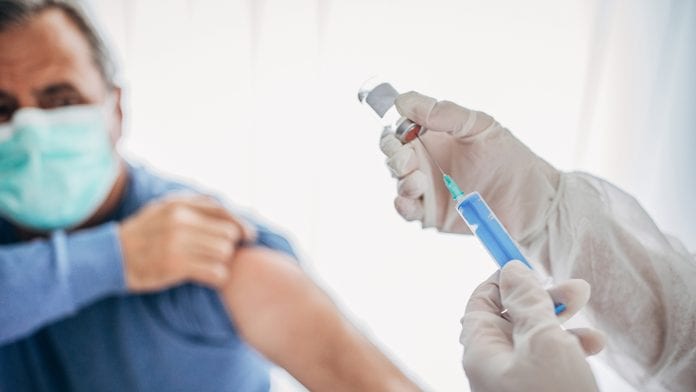
Phase II of the Oxford vaccine trial has shown promising safety results in older adults, finding it provokes an immune response.
The early stage results, published in The Lancet, have shown the ChAdOx1 nCoV-19 vaccine against COVID-19 shows similar safety and immunogenicity results in people aged 56 years and over, to those seen in adults aged 18 to 55.
The results also found that it causes few side effects, and induces immune responses in both parts of the immune system in all age groups at low and standard doses – provoking a T-cell response within 14 days of the first dose of vaccination. It also produces an antibody response within 28 days of the booster dose of vaccination.
Phase III trials are ongoing to confirm the results and how effective the vaccine is in protecting against COVID-19 infections in a broader range of people, including older adults with underlying health conditions.
Generating immune responses in older adults
The new study is the fifth published clinical trial of a vaccine against COVID-19 to be tested in an older adult population. One study has shown similar immune responses in young and old adults (Moderna mRNA vaccine), while other trials have suggested lower measured responses in older adults, compared to younger adults receiving the same vaccine (CanSino single dose adenovirus-vector vaccine, Pfizer/BioNTech mRNA vaccine, and SinoPharm/Beijing Institute of Biological Products inactivated viral vaccine).
Study lead author Professor Andrew Pollard, University of Oxford, UK, says: “Immune responses from vaccines are often lessened in older adults because the immune system gradually deteriorates with age, which also leaves older adults more susceptible to infections. As a result, it is crucial that COVID-19 vaccines are tested in this group who are also a priority group for immunisation.”
Co-author Dr Maheshi Ramasamy, University of Oxford, UK, added: “The robust antibody and T-cell responses seen in older people in our study are encouraging. The populations at greatest risk of serious COVID-19 disease include people with existing health conditions and older adults. We hope that this means our vaccine will help to protect some of the most vulnerable people in society, but further research will be needed before we can be sure.”
As the study recruitment occurred during a national lockdown in the UK when vulnerable individuals were advised to self-isolate, it only includes healthy participants and not those with co-morbidities or who are frail. Before receiving the vaccine, all participants had a blood test to determine if they had previously been infected with the virus, with those who had antibodies being excluded except for 18-55-year-olds in the standard dose double vaccine groups.
Side effects
The study found that adverse reactions to the vaccine were mild, with the most common effects being injection-site pain and tenderness, fatigue, headache, feverishness and muscle pain – however, these reactions were more common than seen with the control vaccine. Thirteen serious adverse events occurred in the six months since the first dose was given, none of which were related to either study vaccine.
Adverse effects were less common in older adults than in younger adults and similar levels of local symptoms were seen after the first and booster doses of the Oxford COVID-19 vaccine in older adults, while there were few systemic symptoms following the booster dose.
Co-author, Professor Sarah Gilbert, University of Oxford, UK, said: “The WHO has outlined a number of critical factors for COVID-19 vaccines, including that they must be targeted at the most at-risk groups including older adults.
“They must also be safe, effective in preventing disease and/or transmission, and provide at least six months of protection for people frequently exposed to the virus – such as healthcare workers. Our new study answers some of these questions about protecting older adults, but questions remain about effectiveness and length of protection, and we need to confirm our results in older adults with underlying conditions to ensure that our vaccine protects those most at risk of severe COVID-19 disease.”
The authors note some limitations to their study, including that the participants in the oldest age group had an average age of 73 to 74 years and few underlying health conditions, so may not be representative of the general older population, including those living in residential care settings or over 80 years of age.










